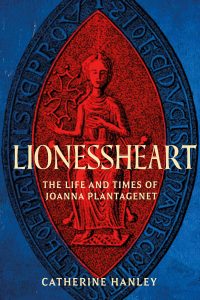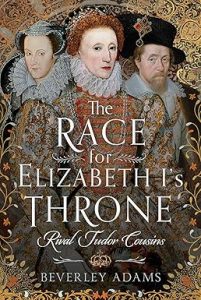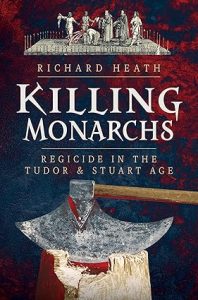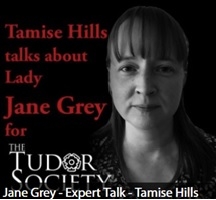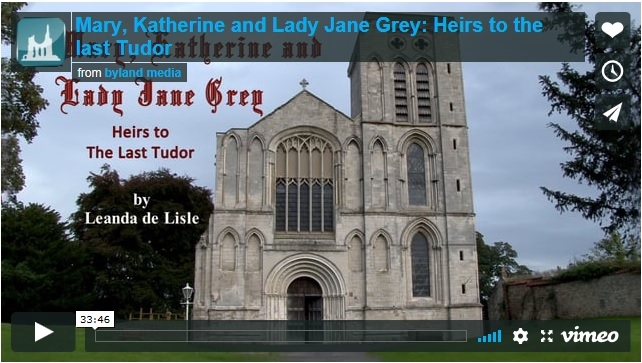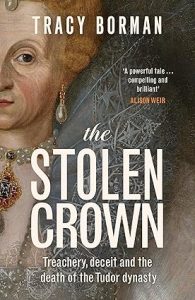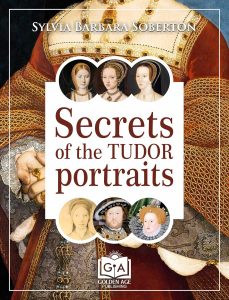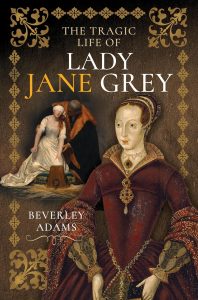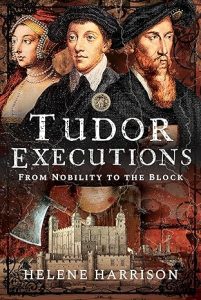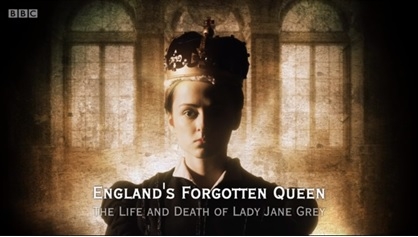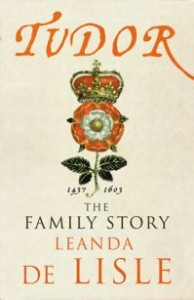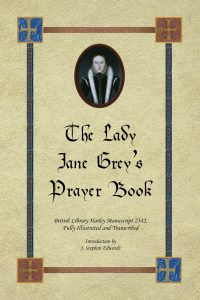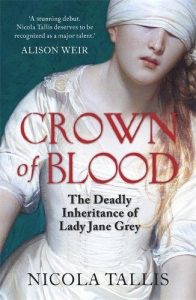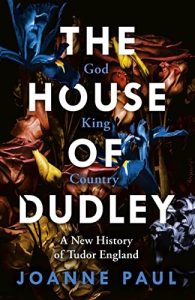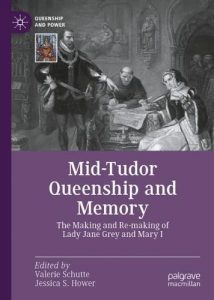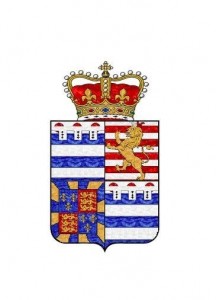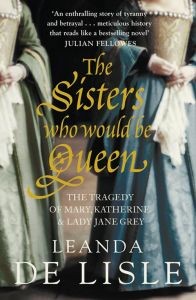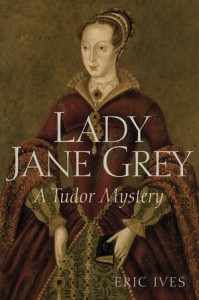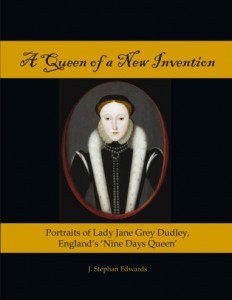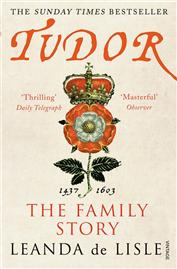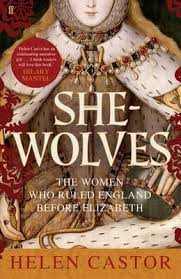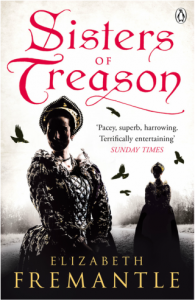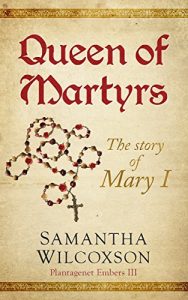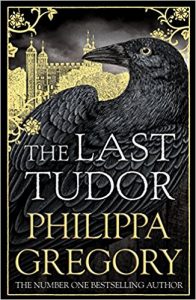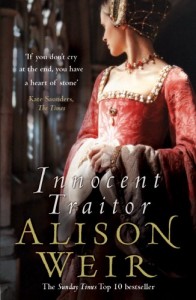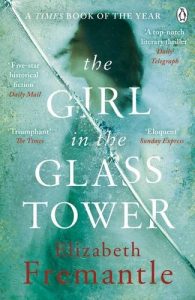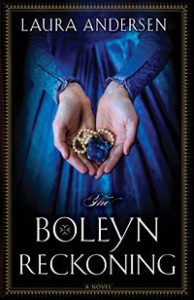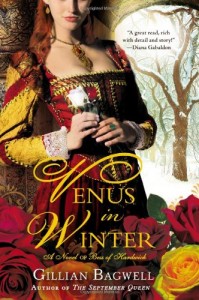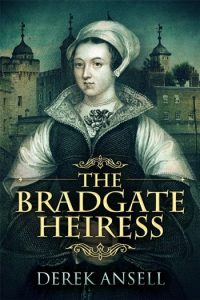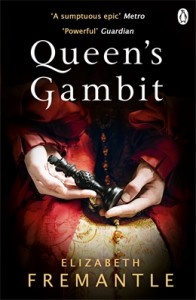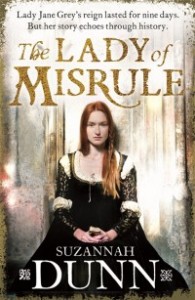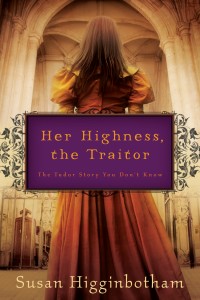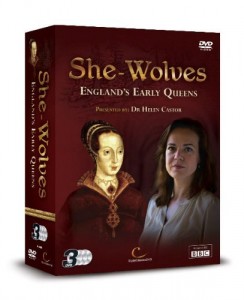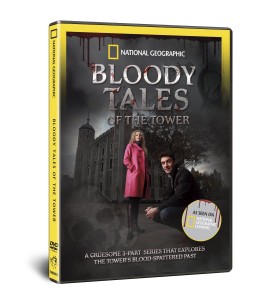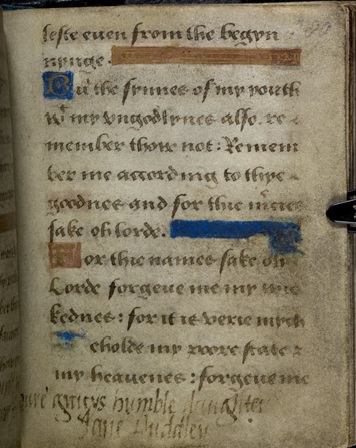Today I have a guest post by James Peacock. You can follow him on Twitter @James8633.
Last Wednesday James attended a talk by Sarah Gristwood and Alison Weir at the Folkestone Book Festival.
A huge thank you to James for writing this report.
When I found out Alison Weir and Sarah Gristwood were doing a talk in Folkestone, I knew I just had to be there… Despite the fact that living in Guildford would mean for me to spend six hours on the train (3 there 3 back)! I have had the absolute pleasure and honour of meeting both ladies before and find them both so charming and insightful to talk to, really you want to just talk with them for hours (although that wouldn’t quite be their pleasure I’m sure).
The talk itself centred around the women in the ‘Wars of the Roses’ (although naturally the Kings themselves come into it) – as that is the subject of Sarah’s new book ‘Blood Sisters’ (covering Cecily Neville- the proud Yorkist matriarch, Margaret of Anjou the fierce she-wolf, Elizabeth Woodville, Anne Neville etc), and obviously Alison has written ‘Lancaster and York’ ‘Princes in the Tower’ and a new biography on ‘Elizabeth of York’ coming out next year.
Of course with the recent possible discovery of the remains of the controversial Yorkist King Richard III, plus the recent releases of Philippa Gregory’s historical fiction books on the Queens during the wars (one of which is being made into a TV series next spring by BBC), the Wars of the Roses is going through something of a surge in interest at the moment so it was a no brainer really for me when I found out about this talk and that it was on my day off- I was most definitely going!
Both Alison and Sarah where in interviewed by Louise Wilkinson. The conversation started with Sarah explaining how her book came together, for those that don’t know the book covers the lives of 7 women during the Wars of the Roses from Cecily Neville- the proud Yorkist matriarch, Margaret of Anjou the fierce French ‘she-wolf’ behind her Lancastrian king, the formidable battle-axe Margaret Beaufort mother of Henry VII, Elizabeth Woodville the wife of Edward IV, mother of the lost princes who was forced into deal-making with her enemy. Elizabeth of York whose marriage to Henry Vii promised peace after Bosworth and her aunt Margaret of Burgundy, who constantly sent pretenders to harass the new dynasty. Basically it never meant to cover all 7 women but upon researching further into the stories she found that each of them lived such fascinating lives- Cecily Neville for example wasn’t originally supposed to be in the book, however her story- her son Edward ordering the execution of his brother the Duke of Clarence and the suspicion that her other son Richard III may have murdered his nephews meant she had to be included within the book.
She spoke about how the business of their lives was power; their sons and husbands the currency; the stark events of these times worthy of Greek tragedy. The aim of her work on this book is to interweave their individual stories, to trace the connections between them- connections which sometimes ran counter to the allegiances by their men- and to demonstrate the way the pattern of their lives often echoed each other, she said how in reality these women had far more dramatic lives then the Tudor queens of decades later- they should be a legend, a byword, in a time not only of terror but of opportunity and that their alliances and ambitions helped get a new world under way. They were the mothers and midwives if not actually of modern, then certainly the Tudor dynasty.
Alison, of course is very close to finishing her book on Elizabeth of York and talked about how she has discovered evidence of Elizabeth’s close relationship with her formidable mother in law, that their apartments in the palaces where always very close to each other, they shared jokes often and generally had a pretty good relationship. She talked about the influence Elizabeth had on her children particularly Henry and that Elizabeth had her three younger children with her in her household ( Arthur of course was being brought up as the future king, learning to govern his principality so she wouldn’t have seen him much) both spoke of the evidence pointed out by David Starkey comparing Elizabeth and Henry’s handwriting and how similar it was and that Elizabeth was influential in arranging her daughter Margaret’s marriage to the king of Scotland. She also spoke of Henry and Elizabeth’s marriage and how it was a very close marriage; they got on very well and obviously comforted each other when Arthur died- and how Henry struggled when Elizabeth herself died a year later. Both ladies talked about Elizabeth Woodville’s departure from court, saying how Henry VII would still receive her at court, bestow gifts upon her and that there is evidence that she been considering retiring to a nunnery for a while.
The best moment of all however is the disagreement about Richard III- Sarah said that she is not a member of the Richard III society, but she does feel that he is ‘innocent until proven otherwise.’ Alison however feels that there is sufficient evidence to prove him guilty and is looking forward to stating it in her book, of course naturally it touched on the possibility of the bones that have recently been discovered and appear to show at least a curvature of the spine, or possibly scoliosis… Could the myths about Richards’s appearance be partly true at least or Tudor propaganda- Alison said how she thinks that it may not be Tudor propaganda as a lot of the rumours sprung up later, even after the Tudor dynasty had passed… Could it mean she said, that Richard really did look that, and he was an evil tyrant and that this was all coming out after his reign because people where too scared to come forward with it during his lifetime… An interesting suggestion at least.
For me with my incredible Tudor passion, this was certainly an interesting talk, I’ve always held the Tudors in such high regard for the way England has formed over the years and put it down to that particular era when England ( and eventually United Kingdom) started on its power to greatness, obviously I still always have that opinion but this had made me realise that the Wars of the Roses doesn’t really get the focus it so much deserves- I mean we always comment on how much the Tudors was the original soap opera with back-stabbing, plotting, romances, battles, fighting for power, affairs etc.. and the Wars of the Roses had all that- it was the preceding to the Tudor grandeur, what a fantastic TV series it would make. I cannot wait to start reading Sarah’s book and I simply just cannot say how much I enjoyed the talk and talking with the ladies afterwards, they truly are incredible.


